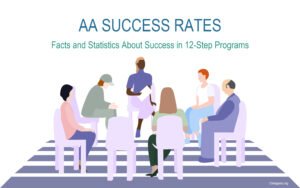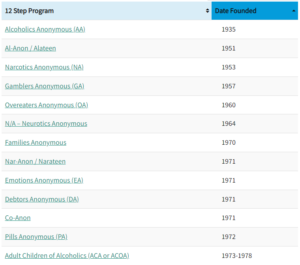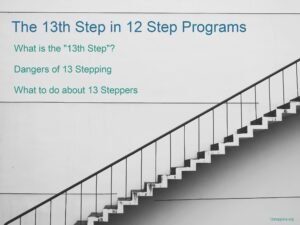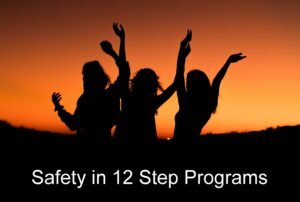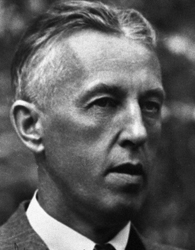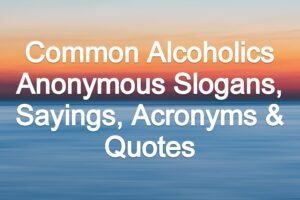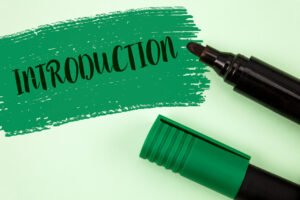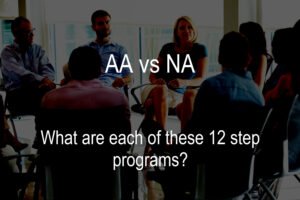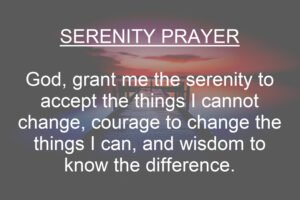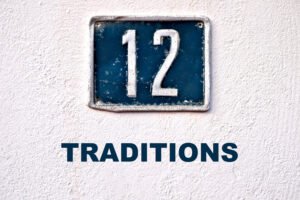12Steppers.org - The 12 Steps & 12 Steps Programs
12steppers.org is a resource website providing information on 12 step programs, the 12 step method and recovery from addiction via the 12 steps. We are not affiliated with any 12-step fellowships and we make no claims related to the efficacy or official endorsement of the 12-step programs discussed on our site. Our content is intended for informational purposes only and should not be considered a substitute for professional medical advice or treatment.
12 Step Programs
Which 12-step program is for you? Our goal is to provide information on all 12 step programs whether they’re for addicts themselves or families & friends of addicts. Below, you’ll see a list of 12 step programs with a brief synopsis of what each program is about and who it is for. Read more about general 12 step program information here.
List of all 12 step programs
List of 12 step programs for substance abuse:
12 step programs for substance abuse are programs that focus specifically on addiction to chemical substances like alcohol, cocaine, crystal meth or heroin. Read more..
- Alcoholics Anonymous (AA) is a 12 step program for individuals struggling with alcohol addiction.
- Cocaine Anonymous (CA) is a 12 step program for individuals struggling with cocaine addiction.
- Crystal Meth Anonymous (CMA) is a 12 step program for individuals struggling with meth addiction.
- Heroin Anonymous (HA) is a 12 step program for individuals struggling with heroin addiction.
- Marijuana Anonymous (MA) is a 12 step program for individuals struggling with marijuana addiction.
- Narcotics Anonymous (NA) is a 12 step program for individuals struggling with drug addiction (general).
- Nicotine Anonymous (NicA) is a 12 step program for individuals struggling with nicotine addiction.
- Pills Anonymous (PA) is a 12 step program for individuals struggling with prescription pill addiction.
List of 12 step programs for friends, family members and loved ones of addicts:
12 step programs for friends, families & loved ones of addicts / alcoholics are programs that don’t focus on the addict but focus on helping the loved ones around them. Read more..
- Adult Children of Alcoholics (ACA or ACOA) is a 12 step program for adults that grew up in alcoholic homes.
- Al-Anon / Alateen is a 12 step program for loved ones of alcoholics.
- Co-Anon is a 12 step program for loved ones of cocaine addicts.
- Gam-Anon / Gam-A-Teen is a 12 step program for loved ones of gambling addicts.
- Families Anonymous is a 12 step program for loved ones of addicts (general).
- Nar-Anon / Narateen is a 12 step program for loved ones of drug addicts.
List of food-related 12 step programs:
12 step programs for food-related addictions & disorders are fellowships for those struggling with compulsive food-related behaviors. These are not strictly focused on over-eating. Some focus on related problems like anorexia, bulimia and binging / purging. Read more..
- Food Addicts Anonymous (FAA) is a 12 step program for those struggling with food addiction with a focus on abstinence from addictive foods.
- Food Addicts in Recovery Anonymous (FA) is a 12 step program for those struggling with food addiction with a focus of abstinence from flour, sugar and avoidance of “binge foods”.
- Overeaters Anonymous (OA) is a 12 step program for those struggling with compulsive eating and food behaviors including anorexia & bulimia.
List of lifestyle & behavioral 12 step programs:
12 step programs related to lifestyle, behavioral or emotional compulsions are fellowships that focus on anything from gambling addictions to co-dependency to racism, over-working, under-earning or cluttering. Like other 12 step groups, their purpose is to assist in achieving a higher quality of life. Read more..
- Clutterers Anonymous (CLA) is a 12 step program for individuals who are suffering from a cluttering addiction.
- Co-Dependents Anonymous (CoDA) is a 12 step program for individuals who have the desire to develop functional and healthy relationship habits.
- Debtors Anonymous (DA) is a 12 step program for individuals who have the desire to stop incurring unsecured debt and want to recover from compulsive debt behavior.
- Emotions Anonymous (EA) is a 12 step program for individuals who had the desire to recover from mental and emotional illness.
- Gamblers Anonymous (GA) is a 12 step program for individuals struggling with compulsive gambling problems.
- Racists Anonymous (RA) is a 12 step program for individuals who want to pull themselves forward and end racism in themselves, then go on to reduce racism in future generations.
- Underearners Anonymous (UA) is a 12 step program for men and women to overcome their problems with underearning.
- Workaholics Anonymous (WA) is a 12 step program for individuals who suffer from workaholism, work procrastination or work aversion.
- Survivors of Incest Anonymous (SIA) is a 12 step program for individuals who are recovering from the consequences of childhood sexual abuse.
List of sex, love & relationship 12 step programs:
12 step programs related to sex, love and relationships are fellowships that on sex & relationship addictions and compulsions. Like other 12-step groups, the purpose of these groups is to help members achieve a higher quality of life. Read more…
Get In Touch
Do you have any questions about 12-step recovery? We would love to hear from you and help you or a loved one get started on your road to recovery. Whether you have questions about meeting etiquette or help finding a meeting near you, we’re here to help! Contact us today.
The 12 Steps of Recovery
What They Are & What Each One Means
When entering any recovery program, you will be introduced to the 12 steps. These steps are the same from Alcoholics Anonymous to Workaholics Anonymous. It is good to get an idea of what all twelve steps are from the start.
Taking each step on by itself is vital to a successful recovery. If you attempt to move onto the next step before mastering the step you are on, it could undo a lot of hard work and damage your ability to complete the steps successfully.
For those working a 12 step program or helping another through it, you can view, download or print our free 12-step worksheet with questions here.
Often, the most challenging it’s also the most crucial step. No one has ever gotten on the recovery path before being ready. A full admission that you no longer control your life, but the addiction controls you is the first step to recovery.
Sometimes, this step scares away newbies on the road to recovery. Often, it’s assumed the higher power is God, as viewed through Christianity, Judaism or Islam. At this point, many cannot conceive of turning their life over to that kind of higher power. This is untrue – this is simply knowing there is something greater than ourselves out there that we can turn to help heal ourselves.
You now know that you can not control your addiction(s) alone, and there is a Higher Power that will help you. This is choosing to turn yourself over to whatever Higher Power you believe in and allow them to be a part of your life, world, and decisions.
This step involves shining a light upon yourself and reliving things you would rather forget. It is challenging, gut-wrenching, and eye-opening. People without addiction issues can often not stand up to this open and honest look at themselves. However, it is indeed what will make the turn from being clean and being sober.
This goes right in line with the moral inventory. You will have to look at everything you have done in service of fulfilling your need for your addiction, admitting there is no excuse for any of it. Here, an addict has to strip away the layer of excuses and reasons for their behavior. The fact that you did those things under your addiction’s influence has to be laid bare to yourself, your Higher Power, and one other person. Often, that person will be a counselor, sponsor, or friend you have in the program, which is okay.
Once you have found your faults and admitted them to yourself, your Higher Power, and another person, you must be ready for that Higher Power to work through you to overcome all the shortcomings you have identified. This is being open, letting a Higher Power in, and letting them forgive you and help you change.
Once you are ready to accept the help of your Higher Power, you then must take the step of asking for help humbly. This is not a demand or a desperate plea. It’s an honest request to make yourself better and healthier.
Admitting your wrongs, your shortcomings, and acknowledging the behavior in the past is easy compared to sitting down and making a list of people who have been hurt or sacrificed in some way to appease your addiction. Doing this honestly will be grueling and painful, but also will make you understand precisely how much your addiction has harmed both you and those around you.
This is a step that will help you learn to understand putting others before yourself. You have to sit and look at the things you have done wrong in your life and then decide if you attempting to make amends directly to the person will help or hurt them – not you.
Constant self-control, self-introspection, and self-awareness. That is what it takes to stay sober, and that is what this step will prepare you for. No excuses, no acquiescing responsibility. Always knowing that you are responsible for your actions, and you can hurt yourself and other people.
Keeping in touch with your inner-self and your Higher Power is everything in those times when you are struggling to remain on the path of recovery. Continually seeking out a time to correspond with your Higher Power and opening yourself to let you know what they want for you and how they want you to do it is key to this step.
At a certain point in your recovery, moving on to help bring these steps to others will help you further. You didn’t know the power of these steps until you were shown and understand others do not.
Hopefully, these breakdowns will let you know what to expect as you progress through the 12 Steps of recovery. Working the program may be challenging and strict at times, but it is worth it to help you live a life in recovery instead of addiction.
Remember that no matter what sort of compulsion you may be suffering from, there is a 12-step program that is right for you. As you can see, there is more than one alternative for several of these problems. There is no need to suffer alone. Reach out for help now or refer your loved one.
Brief History of 12 Step Programs
Alcoholics Anonymous was formed in 1935 and has proven to be a very popular and long-standing organization. It now has over two million members in well over 100 countries. Its success in helping alcoholics recover has inspired addicts suffering from other maladies to apply the same principles to help them recover as well.
In 1953 Narcotics Anonymous was formed, to help drug addicts, achieve a better life. It has now grown into the second biggest 12-step program. Four years later, Gamblers Anonymous was formed. These were followed by Neurotics Anonymous, Debtors Anonymous, and many others.
How many 12 step fellowships are there?
There are 34 programs widely known programs that model themselves after the Alcoholics Anonymous program and use the 12-step program in its entirety. Also, there are dozens of addiction recovery programs that use part of the 12-step approach or use it in ways that are significantly different from the Alcoholics Anonymous approach.
Later groups were also formed to help the family and friends of addicts deal with the heavy fallout of addiction in their own lives.
With so many groups out there, it can be hard to keep track. Therefore, in this guide, we will divide them by the relevant addiction category.
A 12 stepper is a member of a 12 step program. The term “12 stepper” can be applied to any 12 step program member including members of AA, NA, MA and other groups.
When someone is ’12 stepped’, it refers to when members of a 12 step program discuss the benefits of the 12 step program with them and help the “see the light”. This can occur in a casual conversation or when someone is on a 12 step call.
A 12 step call is when members of a 12 step fellowship have a conversation with someone who is still struggling with addiction. By speaking with someone who is still struggling, the 12 step call benefits the individual who needs help and the person offering help. Read more about 12 step calls here.
Working the 12 steps may take some members a few weeks and it may take other members a year or more. Each sponsor practices their own unique way of working the 12 step program with their sponsee and some see the importance in working the 12 steps as thoroughly and quickly as possible.
Here are the original 12 steps:
- We admitted we were powerless over alcohol–that our lives had become unmanageable.
- Came to believe that a Power greater than ourselves could restore us to sanity.
- Made a decision to turn our will and our lives over to the care of God as we understood Him.
- Made a searching and fearless moral inventory of ourselves.
- Admitted to God, to ourselves, and to another human being the exact nature of our wrongs.
- Were entirely ready to have God remove all these defects of character.
- Humbly asked Him to remove our shortcomings.
- Made a list of persons we had harmed, and became willing to make amends to them all.
- Made direct amends to such people wherever possible, except when to do so would injure them or others.
- Continued to take personal inventory and when we were wrong promptly admitted it.
- Sought through prayer and meditation to improve our conscious contact with God as we understood Him, praying only for knowledge of His will for us and the power to carry that out.
- Having had a spiritual awakening as the result of these steps, we tried to carry this message to alcoholics and to practice these principles in all our affairs.
Recent 12 Step Posts
Additional information about the 12 steps and 12 step programs.
Search Engine Optimization & Web Design by smallbusinessseo.net

